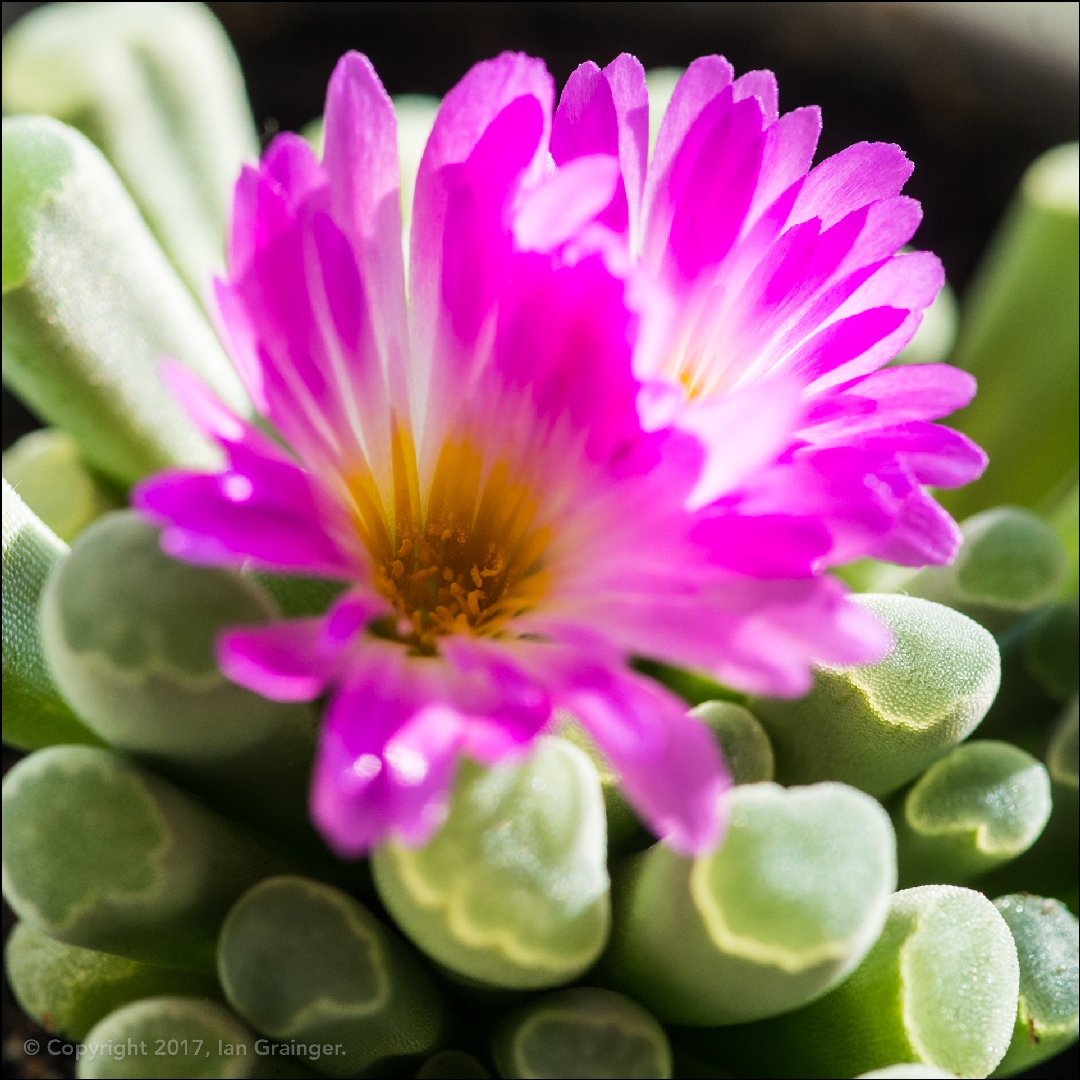
Fenestraria aurantiaca
Baby Toes
'Baby Toes' or 'Window Plant', is a dwarf plant which form mats or small clumps in sandy soil. The leaves are flat-topped and 'windowed', with generally only the uppermost portion exposed. They possess thick, fleshy roots.
-
Full sun
-
Very little water
-
A little frost hardy: 32F (0°C)
-
Light and free draining
Common name
Baby Toes
Latin name
Fenestraria aurantiaca
type
Succulent
family
Aizoaceae
ph
5.0 - 6.5 Acid - Neutral
Plant & bloom calendar
-
Best time to plant
full grown dimensions
 0.20 M
0.15 M
0.20 M
0.15 M
Fenestraria aurantiaca
'Baby Toes' or 'Window Plant', is a dwarf plant which form mats or small clumps in sandy soil. The leaves are flat-topped and 'windowed', with generally only the uppermost portion exposed. They possess thick, fleshy roots.
Planting
From Early Spring TO Early Spring
Because of their modest size, Fenestrarias are best grown in a pot, either by themselves or in a mixed succulent bowl. Fenestraria prefer sandy soil and should be watered sparingly at all times to avoid root rot and split leaves. Mix equals parts potting soil with pumice or perlite. Outdoors, grow in full to part sun; indoors, provide bright indirect light.
Propagation
From Early Spring TO Late Winter
They are usually propagated by seed but sometimes by cuttings. Like many succulents, Fenestrarias produces offsets as the clusters of leaves mature and spread. These are easy to divide from the main clump and will readily produce another plant. The seeds from the plant germinate sporadically and grow extremely slowly. Faster Fenestrarias are achieved by dividing off the side growth.



























